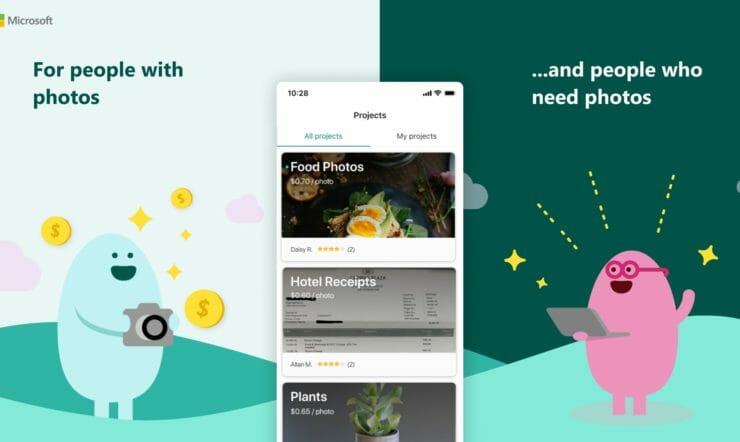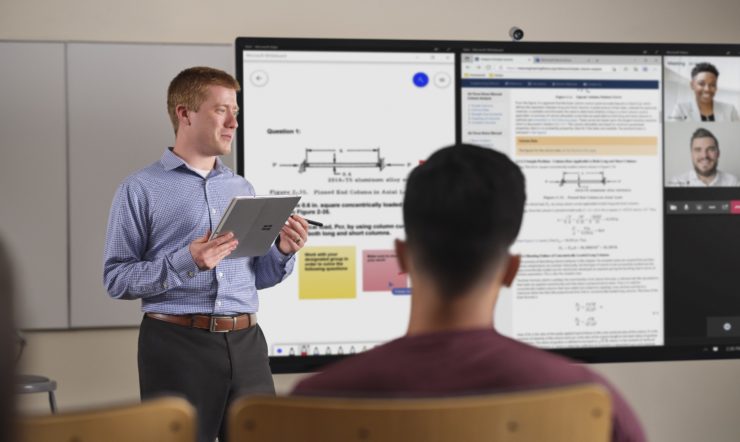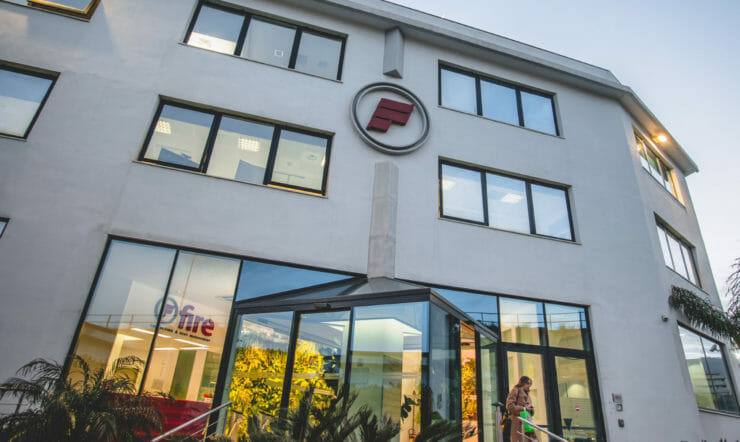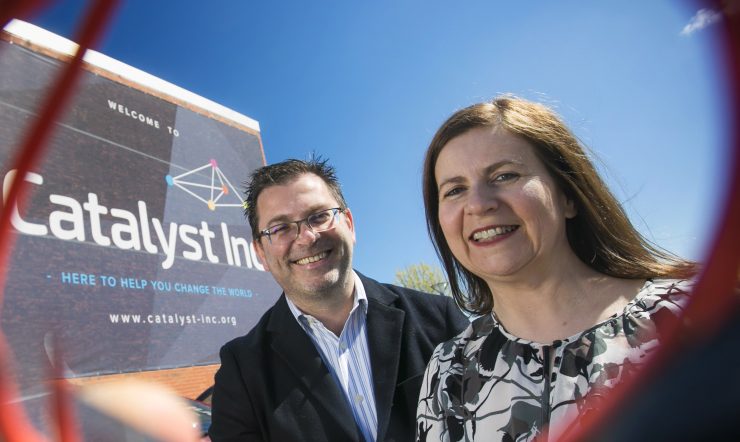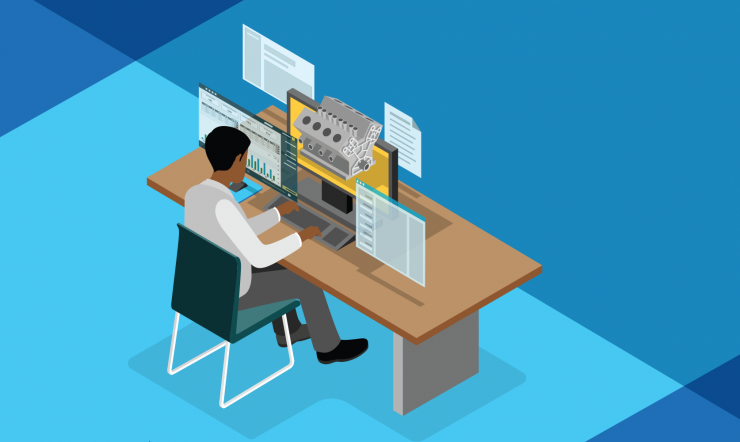Microsoft has learned how to make digital transformation work, not just from projects undertaken with customers, but also by committing to its own transformation journey.
Digital transformation may be a buzzword, but that doesn’t make it meaningless. Far from it – a journey of transformation can open up infinite possibilities for organizations of any size and in any sector.
In recent years, Microsoft has supported large-scale transformations across many industries, delivering real, measurable results.
Robotics giant ABB saw a 20% increase in customer satisfaction after Microsoft’s Azure AI products helped transform its workforce management solution. Rockwell Automation achieved $300,000 in savings every day after transitioning to Office 365. A chatbot Microsoft created for UPS engaged in over 200,000 customer conversations in its first eight months alone.
These are some examples of the outcomes that can be realized when data is leveraged with Artificial Intelligence (AI). But digital transformation is not about isolated achievements. It is about recalibrating the entire organization around collecting, analyzing and using data. It is about becoming an organization with the ability to learn and evolve.
It’s not a one-time fix, it’s a journey. And it’s one Microsoft has been on itself.
Making it happen at Microsoft
Over four decades, Microsoft has grown from a small start-up to a $110 billion business with more than 130,000 employees. As the 4th Industrial Revolution hit, Microsoft felt the need for its own digital transformation to be at the forefront of the digital age.
The company set out to become a truly Intelligence Driven Organization with data at its heart. But to transform on such a massive scale, everyone from the CEO down had to align behind a vision that could inspire real change. It meant committing to new ways of working that would transform every process on which Microsoft was built. The whole business would need to work differently, experimenting more and learning from failure.
The transformation was a strategic imperative from the beginning. Looking back, you can follow the journey Microsoft was taking through CEO Satya Nadella’s public announcements. In April 2014, Satya said: “You have to build deeply into the fabric of the company a culture that thrives on data.” From that point on, everyone at Microsoft embraced a way of working that was centered around leveraging data to better understand and make decisions.
In 2017, Satya wrote the book Hit Refresh, covering the transformation at Microsoft within the context of AI and its impact on everyday life – a story encapsulated in his statement that “AI is the runtime that is going to shape all of what we do going forward.”
One year later, he introduced the idea of Tech Intensity, explaining that, “every organization will need to have what I describe as tech intensity…to be a fast adopter of digital technology…to build their own proprietary digital capability.”
A growth mindset
At the heart of Microsoft’s transformational journey was the concept of a growth mindset: the idea that everyone can change, learn and grow. To bring this vision to life, Microsoft identified four attributes that would allow this mindset to flourish.
The first attribute was obsessing over the people who matter most – the customers – and really understanding what truly matters to them. Second, Microsoft wanted to become a more diverse and inclusive organization. Third, the company wanted to break down its siloes and start operation as a single unit. And finally: to make a difference to the lives of each other, customers and the world around them.
As Satya pointed out, “as a culture, we are moving from a group of people who know it all to a group of people who want to learn it all.”
To track the progress of their cultural transformation, Microsoft began by asking employees if they were seeing evidence of positive change. This data was then evaluated against attributes that were measured over time. They included quantitative and qualitative analytics, with regular focus groups to ensure the trends that emerged were fully understood. To drive openness and transparency, all findings were regularly shared with senior management.
Becoming intelligence driven
Microsoft’s digital transformation offering is delivered by Microsoft Consulting Services (MCS). With a long list of global clients from Toyota to the UN Refuge Agency, MCS applies enterprise technology to business problems by understanding goals, identifying risks, and guiding digital transformation.
It helps organizations unlock powerful insights, empower teams with organizational agility, and enhance security for a competitive edge. And it offers support at every step – helping businesses make the best use of the Microsoft ecosystem.
In short, MCS helps its customers become Intelligence Driven Organizations. That is, an organization that leverages data combined with AI-technologies to foster growth, innovation, speed to market and cost efficiency.
It’s an approach to digital transformation that is shaped not only by Microsoft’s own story, but also by years of conversations with business leaders the world over undertaking their own transformations.
Together, these influences led directly to the development of the Intelligence Driven Organization (IDO) model.
The IDO model
The IDO model is not a tech solution, or an offer. It’s MCS’ approach to helping organizations navigate their own transformations.
The IDO model helps organizations identify their ‘north star’ – that is, the set of business outcomes they wish to achieve and where they want to go in the future.
Then, it provides a roadmap that allows organizations to design the processes that will generate these outcomes – and build the capabilities to digitalize those processes so that they can be implemented, monitored, measured and continuously improved over time, creating digital feedback loops.

Digital feedback loops
Digital feedback loops can be seen as flows of information that emerge when a business process has been redesigned around data. That process could be an interaction with customers (e.g. website use, sales enquiries or product purchases). It could concern back-office operations. It could involve employee activity (e.g. intranet use or response to a survey) or it could involve the real-time usage of products (e.g. application crash data transmitted back to the software developer). The data is collected and used to optimize that process by AI-enabled applications. Crucially, all information can be surfaced to the business processes that need it. There are no data silos.
Digital feedback loops are a central component to becoming an Intelligence Driven Organization – creating a foundation that fuels positive change, enabling organizations to be more productive at scale and become increasingly customer centric.
The four axes of the IDO model
The IDO model provides a framework for organizations to make digital feedback loops a reality. It distills everything Microsoft has learned globally about how to approach digital transformation and breaks it down into four key axes.
The first involves development of an executive strategy that will see an intelligence driven culture take root. The second axis ensures the right technical capabilities are in place, creating a foundation for the journey ahead. It concerns the capabilities that will be needed, along with where they should be developed and when. Third comes a look at the day-to-day execution of the transformation, before the fourth and final stage – this is where the organization must envision and prioritize a set of scenarios that represent the desired business outcomes.
Framing an approach to transformation through the four axes helps organizations overcome the key obstacles to becoming intelligence driven that are often highlighted in research. These include availability of data, a shortage of data science skills, a difficulty envisioning the right business use cases and, most importantly, a culture that struggles to understand the need to be data driven.
The right way to rebound
In April 2020, Satya Nadella said:
“we’ve seen two years’ worth of digital transformation in just two months.”
Now a new normal is emerging in the way people travel, work and shop. Organizations must respond quickly, becoming more efficient, more agile and more adaptable.
The principles behind Microsoft’s digital transformation can form the basis of similar projects in any organization. By becoming a business driven by data and AI – one that learns and evolves – companies can build the resilience they need to face the challenges of the future.
Microsoft Consulting Services can help business leaders use this moment as a trigger to transform, repositioning their organizations for a more competitive age. In the future, change will come even faster. To thrive, everyone must adapt.
